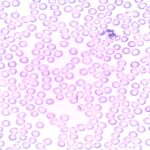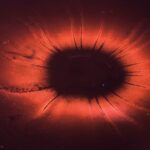Penn State College of Medicine researchers have shown, for the first time, a possible correlation between the partial meltdown of the Three Mile Island Nuclear Generating Station and thyroid cancers in the counties surrounding the plant. Three Mile Island (TMI), located near Harrisburg, Pennsylvania, had a partial meltdown accident on March 28, 1979. During the […]
New treatment of acute myeloid leukemia achieves remarkable results in a disease formerly with little hope
The prognosis for older patients with acute myeloid leukemia (AML) is poor: very few achieve remission and for those that don’t the option is largely palliative. Every year almost 1000 Australians die of the disease and clinical trials into new therapies for older patients have largely failed. A new Australian drug trial has achieved a […]
Artificial sweetener could intensify symptoms in those with Crohn’s disease
In a study that has implications for humans with inflammatory diseases, researchers from Case Western Reserve University School of Medicine and colleagues have found that, given over a six-week period, the artificial sweetener sucralose, known by the brand name Splenda, worsens gut inflammation in mice with Crohn’s-like disease, but had no substantive effect on those […]
Food dyes may cause disease when the immune system is dysregulated, researchers report
Artificial food colorants can cause disease when the immune system has become dysregulated, Icahn School of Medicine at Mount Sinai researchers report. The study, published in Cell Metabolism in May, was the first to show this phenomenon. The study, conducted in mice, found that the mice developed colitis when they consumed food with the artificial food colorants FD&C Red […]
CBD reduces plaque, improves cognition in model of familial Alzheimer’s
A two-week course of high doses of CBD helps restore the function of two proteins key to reducing the accumulation of beta-amyloid plaque, a hallmark of Alzheimer’s disease, and improves cognition in an experimental model of early onset familial Alzheimer’s, investigators report. The proteins TREM2 and IL-33 are important to the ability of the brain’s […]
Solving mystery of rare cancers directly caused by HIV
For nearly a decade, scientists have known that HIV integrates itself into genes in cells that have the potential to cause cancer. And when this happens in animals with other retroviruses, those animals often develop cancer. But, perplexingly and fortunately, that isn’t regularly happening in people living with HIV. A team led by University of […]
Beetroot juice may provide benefits to heart disease patients
A new study finds that dietary nitrate — a compound that dilates blood vessels to decrease blood pressure — may reduce overstimulation of the sympathetic nervous system that occurs with heart disease. The research team looked specifically at beetroot juice, a source of dietary nitrate, to explore its use as a future targeted treatment option […]
Excessive fructose consumption may cause a leaky gut, leading to fatty liver disease
Excessive consumption of fructose — a sweetener ubiquitous in the American diet — can result in non-alcoholic fatty liver disease (NAFLD), which is comparably abundant in the United States. But contrary to previous understanding, researchers at University of California San Diego School of Medicine report that fructose only adversely affects the liver after it reaches […]
Fungi that live in the gut influence health and disease
Bacteria’s role in gut health has received a lot of attention in recent years. But new research led by scientists at University of Utah Health shows that fungi — another microorganism that lives within us — may be equally important in health and disease. Fungi thrive in the healthy gut, but they can also cause […]
Being clean and hygienic need not impair childhood immunity
The theory that modern society is too clean, leading to defective immune systems in children, should be swept under the rug, according to a new study by researchers at UCL and the London School of Hygiene & Tropical Medicine. In medicine, the ‘hygiene hypothesis’ states that early childhood exposure to particular microorganisms protects against allergic […]









